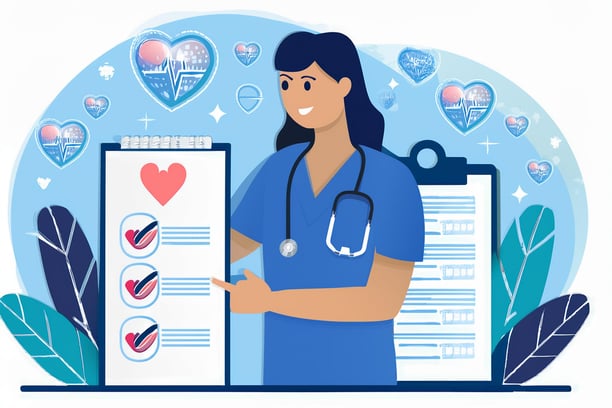🚀 Try REVMEDSYNC for FREE – 1 Month Trial! 🎉 Click Here
Leveraging Big Data: Empowering Informed Decisions in Medical Billing
Data is the new currency in healthcare, and RCM is no exception. Data-driven organizations leverage insights to optimize revenue by understanding patient populations, streamlining operations, enhancing coding and billing accuracy, and plugging revenue leaks.
8/30/20243 min read


In the dynamic world of healthcare, Big Data has emerged as the pivotal force driving informed decisions and optimizing revenue cycles. Revenue Cycle Management Systems (RCMS) are increasingly relying on data analytics to navigate the complexities of medical billing and ensure financial stability. By harnessing the power of data, healthcare organizations can gain valuable insights into their operations, patient populations, and revenue streams, leading to more strategic and effective decision-making processes.
Leveraging Big Data: Empowering Informed Decisions in Medical Billing
Data is the new currency in healthcare, and RCM is no exception. Data-driven organizations leverage insights to optimize revenue by understanding patient populations, streamlining operations, enhancing coding and billing accuracy, and plugging revenue leaks.
Words :
revmedsync
HealthcareAnalytics
PatientData
OperationalEfficiency
BigData
30 August 2024
Understanding patient populations is a cornerstone of data-driven revenue optimization. By analyzing demographic, behavioral, and clinical data, healthcare providers can identify high-value patient segments and tailor their services to meet specific needs. For instance, data analytics can reveal trends in chronic disease management, enabling providers to develop targeted care plans that improve patient outcomes and enhance satisfaction. This patient-centric approach not only improves the quality of care but also fosters loyalty and retention, driving long-term revenue growth. Additionally, understanding the unique characteristics and preferences of patient segments allows for more personalized communication and engagement strategies, further strengthening the patient-provider relationship.
Streamlining operations is another critical benefit of leveraging Big Data in RCMS. By analyzing patient flow, resource utilization, and operational costs, healthcare organizations can identify bottlenecks and inefficiencies that hinder performance. Data-driven insights can highlight areas where patient wait times are excessive, resource allocation is suboptimal(not the best possible option), or operational processes are lagging. With this information, healthcare providers can implement targeted improvements such as optimizing scheduling systems, reallocating resources, or redesigning workflows. These enhancements lead to smoother operations, reduced costs, and improved patient experiences, ultimately contributing to a more efficient and profitable revenue cycle.
Enhancing coding and billing accuracy is essential for maximizing reimbursements and minimizing compliance risks. Data-driven tools can analyze documentation and coding practices to ensure accuracy and completeness. Advanced algorithms can detect anomalies and inconsistencies in billing data, flagging potential errors before claims are submitted. This proactive approach not only reduces the likelihood of claim denials and delays but also safeguards against compliance issues that can result in costly penalties. Accurate documentation and coding are fundamental to securing appropriate reimbursements, and leveraging data analytics ensures that healthcare providers capture every legitimate dollar they are entitled to.
RevenueLeakage






Plugging revenue leaks is a crucial aspect of maintaining financial health in medical billing. Big Data can identify areas where revenue is lost due to errors, underutilization of services, or incomplete documentation. For example, analytics can uncover patterns of missed charges, unbilled services, or frequent claim denials that indicate underlying issues. By addressing these gaps, healthcare organizations can recover lost revenue and improve their overall financial performance. Furthermore, predictive analytics can forecast potential revenue leaks, allowing providers to implement preventive measures and maintain a robust revenue stream. This proactive approach to revenue management is vital in an industry where margins are often thin, and every dollar counts.
In conclusion, Big Data is revolutionizing the way healthcare organizations manage their revenue cycles. By understanding patient populations, streamlining operations, enhancing coding and billing accuracy, and plugging revenue leaks, data-driven decisions are transforming medical billing into a more efficient, accurate, and profitable endeavor. As the healthcare landscape continues to evolve, leveraging the power of Big Data will be essential for providers seeking to optimize their revenue cycles and achieve long-term success.
REV MED SYNC
© 2025. All rights reserved.


Blogs
ServiceS


